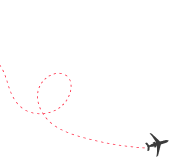




The IELTS reading test assesses your understanding of written English. This test lasts 60 minutes where you will read the passages from various genres and attempt the reading section afterwards. In this blog, we provide a library of common and challenging IELTS reading practice test and of course the official exam. Whether you're preparing for the exam or simply aiming to sharpen your reading skills, our comprehensive list of reading passages offers invaluable practice and insight into the test format. All the practice test for the IELTS reading section replicates the official language test.

Table of Contents
1. Should I Answer All the Questions Asked in the second task of the IELTS Reading Section?
2. Is There Any Negative Marking in the IELTS Exam?
3. How Can I Get 7.0 in IELTS Reading Test?
4. What Common Mistake Do Test Taker Make While Attempting Reading Section?
5. Can I Skip The Question And Attempt It Later?
6. Where Can I Find Free IELTS Reading Practice Test with Answers?
The reading section of the IELTS exam is of 60 minutes and there are 40 questions to attempt. Moreover, there are three tasks. Each of them has 13-15 questions. So, it is recommended that the test taker complete each task in 20 minutes along with the proofreading to avoid any chaos at the last moment.
Since IELTS is a language test, many of the skills of the test takers are analyzed so in the reading section following skills are analyzed.
Let us know about the IELTS reading passages that you will come across in the reading section of the language proficiency exam.
As already mentioned above, this section analyzes the comprehensive skills of the test taker. However, the format and question type remain the same in both IELTS Academic and General Training. The thing that differs is the text of the IELTS reading passage.
In the academic exam, the IELTS reading materials are from relevant books, journals, and magazines. On the other hand, the reading passage IELTS of the general training exam is taken from billboards, advertisements, handbooks, and notices.
You can sign up for the free IELTS mock tests if you want to be familiar with these texts. These will help you to prepare better for your official language proficiency exam.
In the next section, you will come across the list of reading practice tests. You can click each topic and get re-directed to the treasure of reading answers and explanations.
Here is the IELTS reading passage with answers along with the explanations. The test takers can know the reason why that answer is suitable to the given question.
These are the commonly appearing IELTS reading practice test topics in the language proficiency exam. In the upcoming section, you will know the question types.
There are 14 types of questions in the reading section of the IELTS exam. Refer to the image below to know them:

In this section, let us know about these IELTS reading question types in detail.
In this type of question in reading the passage of IELTS, the test taker has to match the heading to the correct paragraphs. However, the list of headings is marked as I, ii, iii, and the paragraph will be lettered as A,B,C. The test takers must be careful as the number of headings in the list will be more than the paragraph. It is, however, done to make the task harder.
In this question type, the candidate must find the given information from the reading passage. While giving the reading answers, the test taker has to write the correct paragraph letter on the answer sheet.
In this question of IELTS Reading, you need to match a set of statements or a piece of information from the given options. These options are a group of features from the passage. There’s a possibility that some options will not be used while some may be used more than once.
In these questions, the test taker has to match the beginning of the sentence with the ending. However, you can find the first half of the sentence in the question and the other half in the box. Thus, matching them will be your task.
The trickiest question out of all is the True False Not Given Question. In these question types, the test taker has to identify the information. They have to answer yes if it matches the information and no if t does not. However, if it does not match the data at all, then they have to write ‘not given’ in their answer sheets.
The test taker has to select the options from the given list. Also, you will see a question with options (in letter format from A-D). It can be a question or completing the sentence with the correct option. However, the candidate must choose the right option from the list.
The list selection questions are a bit tricky when compared to other types of questions. It is so because of the similarity. In this, you will see a question and a list of possible answers, similar to the MCQs. Moreover, this question will tell you how many answers you will need to select, so you will need to select more than one answer.
It is a regularly appearing question type in the IELTS reading test where the test taker has to give a suitable title to the various paragraphs of the passage. However, the difficulty level of these types of questions is considered hard.
In IELTS reading question types, students find this question easiest to answer. You must answer the question using information from the text with a short phrase. Write your answers in specific words/numbers as per the given instructions.
In this question, you are asked to complete the sentence with a specific number of words. It may be ‘one word, two/three words, no more than three words/a number, and so on.
You will see a summary of a passage. To answer you must use the real text to complete it. The answers don’t need to appear in the same order as given in the passage.
In this IELTS reading passage, you will come across a table where a few of the cells will not have information. The test taker has to fill those cells using one word from the given list.
In this question type, the appearing candidate will see a flow chart with missing information. They have to fill out the flow chart correctly. For this type of question in the IELTS reading passage, you may or may not have a word bank. These are considered to be the “most difficult” in the IELTS reading section.
A few of the questions might be about diagram completion. Here, a diagram will be there and the test taker has to label it using the information from the IELTS reading passage.
These were the types of questions that appear in the IELTS exam. Also, you need to know about all of them before attempting the official exam. Thus, practice test for IELTS reading will help you in knowing the format as well as exploring the question types.
Many test takers find it difficult to ace the IELTS reading test due to its difficult nature. In this section, there are a few tips that you can follow in order to excel in it.
These are the few tips that will help you to ace the IELTS reading test on the first attempt. Also, you must be aware of the IELTS syllabus before you start preparing. In conclusion, you got to know about the reading section of the IELTS exam. Moreover, you learnt about the IELTS reading practice test with answers and explanations. You can sign up on Gradding.com to avail the free practice test for IELTS reading section. These will help you to ace the language proficiency test in the first attempt.
Yes, you should attempt all the 40 questions appearing in the IELTS reading section.
No, there is no negative marking in the IELTS exam. Hence, you can make wise guesses without the fear of mark deduction.
If you want to achieve a 7.0 band score in IELTS reading section, then you must answer 30-32 questions correctly.
The most common mistake that a test taker commits is reading the passage too slowly. This means they take extra time to attempt the questions.
No, you can not skip and come back later. However, there is no choice but to skip in the IELTS exam. Either you have to attempt it or leave it. Since there is no negative marking, the test taker must give a wise guess.
You can find the IELTS reading passage with answers for free at Gradding.com. These will help you ace the IELTS reading test.

We are available in :
BangaloreAhmedabadJaipurHyderabadKeralaPuneChandigarhMumbaiGurgaonChennaiKolkataTrivandrumNoidaKochiCalicutKottayamKollamThrissurIndoreUdaipurdisclaimer:logos and other registered trademarks of universities used on this platform are held by their respective owners. Gradding does not claim ownership or association on them, and their use is purely for informational and illustrative purposes.

 Take Reading Mock Test Now!
Take Reading Mock Test Now! 
